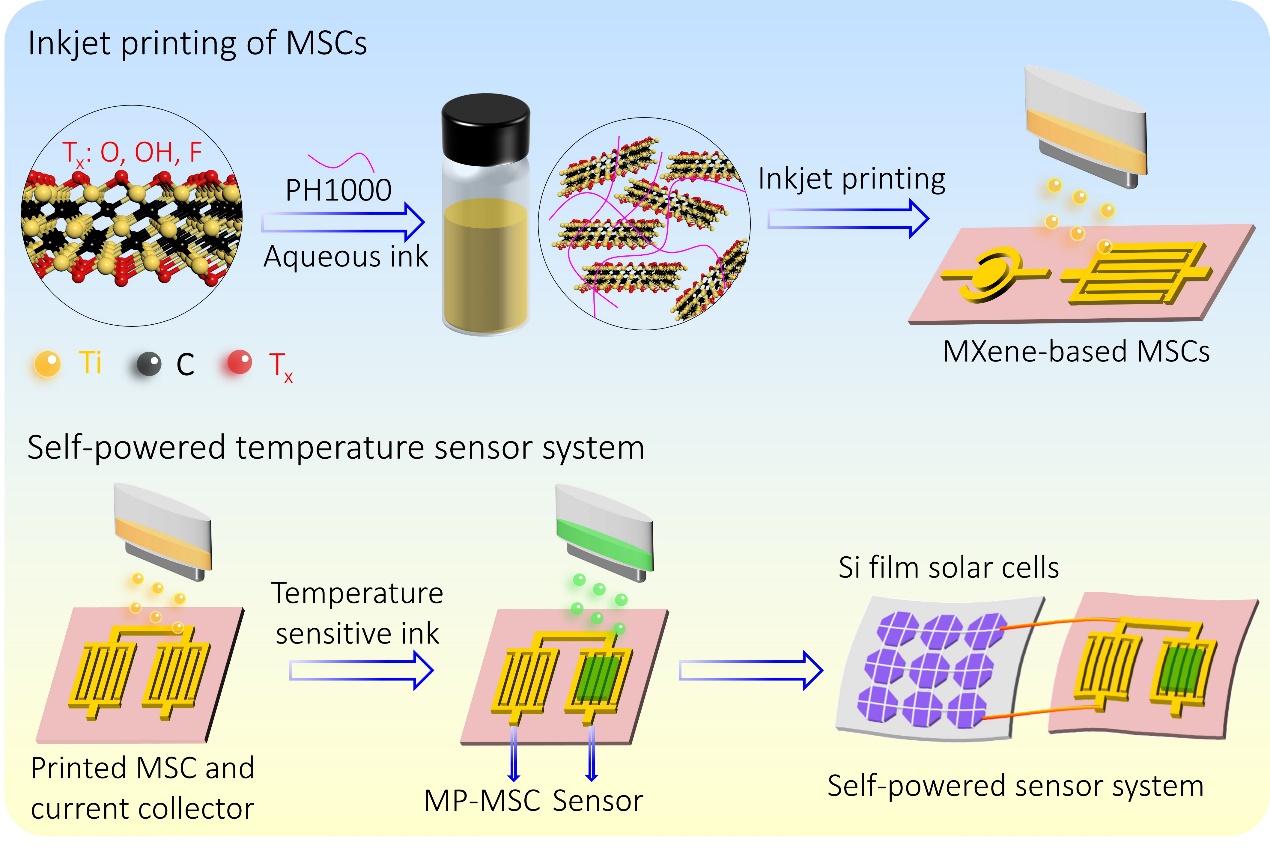Our paper entitled with “Aqueous MXene/PH1000 Hybrid Inks for Inkjet-Printing Micro-Supercapacitors with Unprecedented Volumetric Capacitance and Modular Self-Powered Microelectronics” has been published online in high-impact journal Advanced Energy Materials. (IF=25.245). Many thanks to our cooperative scientists of Prof. Liu at DICP, CAS. Congratulation to Jiaxin!
The development of digital technology has reached the point where the demands on portable and flexible microscale electrochemical energy storage devices (MEESDs) have gone beyond simply achieving high performance to include the incorporation of customizable shape, flexibility, and seamless integration with microelectronics. Integration of MEESDs with microelectronics can solve an array of problems associated with traditional MEESDs by allowing the conversion of intermittent renewable energy sources (e.g., solar, water, thermal, and mechanical energy) into a usable form through portable systems. However, the current microsystems mostly depend on costly and complex fabrication techniques, such as laser carving and photolithography that are incompatible with the mass production of microelectronics. inkjet printing is a high-precision, non-contact, and fully additive process that does not require masks for patterning; thus, it is deemed a promising strategy for the customizable design of smart and flexible electronics. The challenge now lies in the controllable synthesis of corresponding inks that overcome typical problems like nonstability and poor printability while being non-toxic.

Schematic illustration of the fabrication of inkjet-printed MP-MSCs and the self-powered integrated system.
On this point, our DICP scientists Wu Zhong-Shuai and Liu (Frank) Shengzhong reported an aqueous MP hybrid ink for customizable fabrication of planar MSCs (MP-MSCs) with excellent shape diversity, record volumetric capacitance, exceptional integration, and modularization capabilities. The printable MP-MSCs delivered an outstanding volumetric capacitance (754 F cm-3) and a satisfactory energy density (9.4 mWh cm-3), higher than those of most inkjet-printed MSCs. This is attributed to the role of PH1000 in enhancing interlayer contact in the MXene to greatly promoted electron and ion transfer. Moreover, MP-MSCs present exceptional miniaturization and superior modularization featuring high voltage output up to 36 V from 60 serially connected cells and impressive areal voltage of 5.4 V cm-2connected in tandem. To further meet the demand for an integrated planar power system, we connected our MSCs with a flexible solar cell to charge a self-powered temperature sensor. The exceptional response of≈2% is a notably high efficiency, demonstrative of the successful integration.
J.X. Ma, S.H. Zheng, Y.X. Cao, Y.Y. Zhu, P. Das, H. Wang, Y. Liu, J.M. Wang, L.P. Chi, S.Z. (Frank) Liu,* and Z.-S. Wu*. Aqueous MXene/PH1000 Hybrid Inks for Inkjet-Printing Micro-Supercapacitors with Unprecedented Volumetric Capacitance and Modular Self-Powered Microelectronics. Adv. Energy Mater. 2021, DOI:10.1002/aenm.202100746.